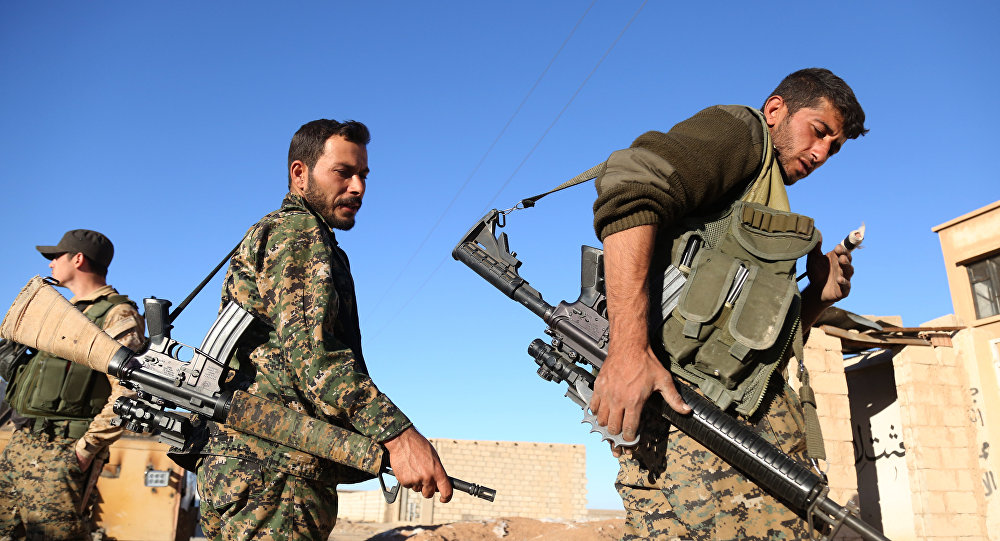The choice of the international coalition to back the Kurdish-led Syrian Democratic Forces to liberate Raqqa from the Islamic State group entails opportunities and risks at the same time. This force has proved its worthiness in confronting ISIS on more than one occasion and battle, and the battle to liberate Ain al-Arab/Kobani was a clear and prominent example — and the battles of Ras al-Ain, Tel Khamis, Janoub al-Radd, Al-Houl, Al-Yaaribiyeh, Hassakeh, Tel Abyad, Al-Shadadi, and the Tishreen Dam, were prominent examples of its readiness to sacrifice and its fighting capabilities.
However its great preparedness and capabilities do not justify, on their own, the choice for this task, especially in that it is trying to imposed a political project which does not enjoy national consensus, and that its human rights record demonstrates illegal and violent practices against Arab and Turkmen citizens in the areas they have liberated from ISIS — and Raqqa is an area where most of its residents are Arabs. This has sparked fears that these practices will be repeated and has placed questions marks around the logic of the American choice and its innocence.
Turkey, which was provoked by the announcement of the SDF leadership that it had made a final agreement with the international coalition that there would not be any role for Turkey or the rebel groups it cooperates with in the liberation of Raqqa, expressed its disagreement began with its announcement that its primary goal was to expel the SDF from the city of Manbij, in a sign of an obstacle to the operation to isolate Raqqa through the SDF attack on Manbij, not to mention the reports about the start of preparations for more than 500 fighters from Raqqa who had been trained in camps run by the Turkish army to enter Syrian territory in the operation. If the report is true, it would shuffle the papers and impose alternative choices. Numan Kurtulmus, the Turkish deputy prime minister said that, “using non-Arab forces to expel ISIS fighters from their headquarters in the Syrian city of Raqqa will not help bring about peace in the region.”
The regime for its part expressed reservations about the choice of the SDF, with the Syrian newspaper Al-Watan which is close to the regime, making a connection between the start of the operation and the presidential elections in the United States, and doubted the ability of the SDF to achieve the mission set for them. It quoted an unnamed Western diplomatic source in Paris as saying, “the Syrian Democratic Forces do not have the ability to fight the terrorist group even if Washington and Paris backed them with all their strength.”
Washington tried to absorb the Arab and Turkish reaction by making reassuring statements like that of the special envoy for the international coalition forces, Brett McGurk, that Washington was in “very close” communication with Turkey about the battle for Raqqa and sending the US Chairman of the Joint Chiefs of Staff Joseph Dunford to Ankara and holding a lengthy meeting on Sunday with his Turkish counterpart Hulusi Akar and Turkish political and military leaders. The meeting lasted about four and a half hours with the Turkish media describing it as being very important, and announcing the work with Turkey to develop a plan to liberate the city in a hint that the role of the SDF would stop at isolating the city.
But will the United States succeed in calming the Turkish-Arab refusal?
The situation calls for real and significant steps to resolve the issue of Raqqa remaining for its people, in form and content, and ensuring the rejection of what was announced by Gharib Hissou, an SDF representative in Iraqi Kurdistan, that Raqqa would be incorporated into the federalism that the Syrian democratic gathering announced the establishment of in its Remailan conference on March 17, 2016.
This article was translated and edited by The Syrian Observer. Responsibility for the information and views set out in this article lies entirely with the author.


